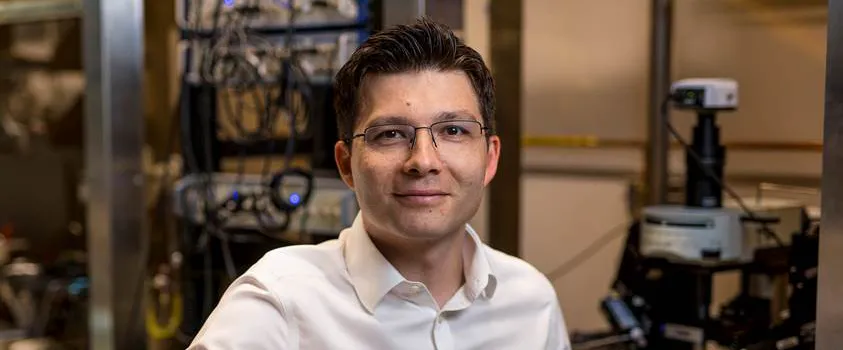
Dr. Sergiu Pasca.
June 4, 2024 - Federation of European Neuroscience Societies (FENS)
The Chica and Heinz Schaller Foundation Award in Translational Neuroscience recognizes significant achievements by an individual in translational science, and in particular those where fundamental and conceptual understanding of the nervous system have been brought to support clinically relevant progress.
Professor Sergiu Pasca of Stanford University has led the way in developing self-organising, stem-based organoid and assembloid models of the human nervous system and systematically applied them to uncover the mechanisms of severe neuropsychiatric disorders with the goal of developing new therapeutics.
Professor Pasca developed bottom-up approaches to leverage self-organization in biological systems and assemble, from multi-cellular components, human neural circuits in vitro and, following engraftment, in vivo into animals. These revolutionary approaches are changing our understanding of neuropsychiatric disorders impacting infants and children and are already enabling the development of therapeutics for these conditions.
At Stanford, he carved a unique research program that combines rigorous in vivo and in vitro neuroscience, stem cell biology, and pharmacology to construct and deconstruct previously inaccessible stages of human neural function in health and disease.
He pioneered a creative approach to create functional neural circuit in preparations he named assembloids and his lab introduced the use of instructive signals to generate self-organising regionalised neural organoids. This enabled surprising discoveries, including about developmental timing and self-assembly of early circuits in the nervous system. More importantly, Sergiu leveraged his medical background to apply these models and acquire a deeper understanding of mechanisms of genetic disorders. He discovered electrophysiological defects in 22q11.2 deletion syndrome cortical neurons and the underlying mechanism. He discovered that an abnormal protein folding response causes a premature depletion of intermediate progenitors during hypoxia in cortical development and found ways to prevent it. He discovered the molecular and cellular basis of Timothy syndrome using organoids, assembloids and transplantation studies. The deeper understanding of the biology of this condition, enabled Professor Pasca to develop the first potential therapeutic intervention for Timothy syndrome using a clever exon utilisation switch and he is now preparing a clinical trial.
Moreover, Professor Pasca extensively supported hundreds of labs around the world in implementing these techniques through courses and has been actively involved in bringing together groups around the world to reach consensus and develop an experimental framework for human multi-cellular models.
Professor Pasca’s work has been extensively recognized. He was named a Visionary in Medicine and Science by the New York Times. He is a Knight of the Order of Merit and a Doctor Honoris Causa. He was featured as a physician-scientist by Nature Medicine, was a NYSCF Robertson Investigator and a TED 2022 Speaker. He received the Vilcek Prize, the Altman Award for Developmental Neuroscience, the Daland Award from the American Philosophical Society, the IBRO-Kemali Award, and other prestigious recognitions.
Overall Professor Pasca’s contributions to developing human cellular models of neuropsychiatric disorders, the clinical implications of the tools and discoveries he has developed have the potential to accelerate the study of nervous system disorders and thereby improve their treatments.

